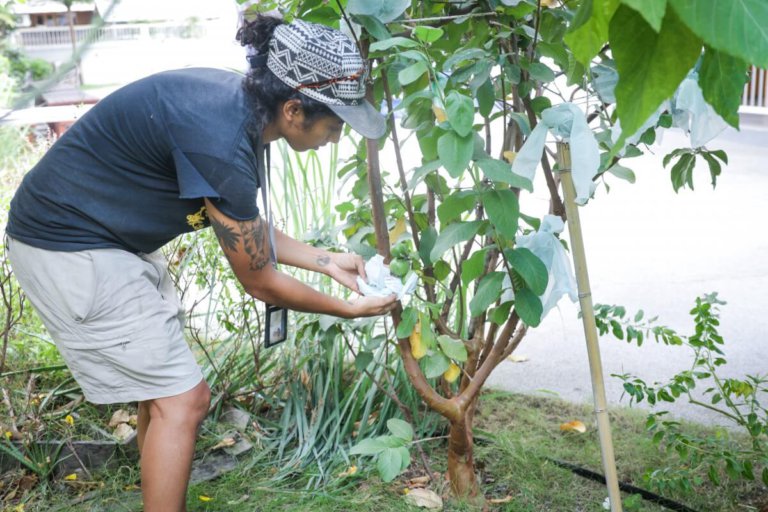
It wasn’t so long ago, before COVID-19 engulfed the world, a very different crisis was unfolding. A different set of leaders could have prevented the ongoing Australian bushfires from happening. Large swathes of lands and over a billion animals could have been saved had its leaders put sustainability at the top of the agenda.
Education plays a central role in empowering the next generation with the right skills and attitude to ensure a crisis of such magnitude never happens again. The International School Ho Chi Minh City (ISHCMC) in Vietnam is one such school that has what it takes to provide such forward-thinking education.
At ISHCMC, students learn in a unique environment that promotes innovation and enthusiasm for this important issue. The established school combines specialists in inquiry-led teaching and cutting-edge facilities to ensure students here ensures students have what it takes to tackle the challenges of the future.
Championing sustainability from every member of the community
Sustainability is more than a fleeting trend – it’s a norm that needs to be embraced. Recognising this, ISHCMC has woven sustainability practices into the school’s social and academic fabric long before it became fashionable.

Source: International School Ho Chi Minh City (ISHCMC)
ISHCMC Head of School, Adrian Watts, opined that the world is heading towards a serious situation with regards to climate change, adding that “we can’t continue to consume and fulfill our infinite wants when the Earth has limited resources”.
With ISHMC’s Sustainability Programme, the School aims to spark enthusiasm about sustainability in addition to empowering the future generation to be conscious about their environmental impact.
More than a chest-thumping rhetoric, the school has embedded sustainability into just about every aspect of school life, from the campus design and range of after-school activities in its curriculum.
Students also further their learning about the topic through the various opportunities presented to them on campus. To drive and anchor their sustainability efforts, they brought in Tanya Meftah, a Sustainability Coach.
“Our students learn how to build things and recycle materials with Tanya. For instance, we built a mushroom hut made from recycled materials such as recycled as wood pallets. We’ve also got students working on recycling plastic,” Watts shared.
They have a machine that crunches plastic into chips while students work alongside Tanya and other adults to turn them into a resource that can be used by companies. In the process, they develop crucial soft and hard skills, be it building and technological skills as well as critical thinking and creative thinking skills, to name a few.

Source: International School Ho Chi Minh City (ISHCMC)
Sustainability is peppered into extracurricular activities too. The Gardening Club, for example, teaches students how to mix soils, plant seeds and compost.
An inspiring campus
The school’s new secondary campus embeds elements of green and sustainable living into its spaces; their buildings are surrounded by greenery while hosting a large community garden where students get their hands dirty and experiment with growing food and plants.
Students can enjoy over 6,000 square metres of green space spread across both campuses, connect with nature on a daily basis and drive the school’s sustainable initiatives, shared Meftah. For instance, in these spaces, the ISHCMC community can grow food which is used in their cafeteria as well as in students’ homes.
“On both our campuses, we’ve designed and built a Sustainability Resource Centre in which interested students can enquire anything related to sustainability and have support from me to pursue their sustainability projects,” she said. There are many different systems in the centre, including recycling grinders, an aquaponics and hydroponics system, and mushroom house, to name a few.
Some of the projects students have engaged in include making bamboo straws engraved with students’ names to discourage plastic straws; Grade 11 students are developing natural mosquito repellents using lemongrass; while their monthly farmers market teaches students the invaluable lesson of how to make and sell their products sustainably. Students have also done in-depth research on solar panelling and pitched their ideas for the school to incorporate its use.

Source: International School Ho Chi Minh City (ISHCMC)
Their efforts have borne fruit. One of many success stories is a group of students who developed an affordable and reliable irrigation system – backed by one of Vietnam’s biggest investment companies – that can be sold to small farmers and improve their crop production.
On the operations side, the school is also bolstering its efforts to become more sustainable, said Meftah. They are incorporating organic waste management, putting efforts into reducing their water and energy consumption, in addition to being more conscious about what they buy and how it affects the planet to deeply ingrain the sustainability culture in students.
To ensure their sustainability programme remains resilient, all aspects of the community are involved, including students, staff and parents. Watts explained that they offer sustainability-related workshops to parents and the community and have been enjoying good engagement.
Every Monday, the school’s cafeteria offers a vegan and vegetarian menu too, prompting students to think about their food choices and its impact on the environment.
With this holistic suite of initiatives, it’s clear that ISHCMC is empowering students to lead the world towards a more sustainable tomorrow.
To learn more, you are invited to join Vietnam’s first LIVE Virtual Tour of ISHCMC’s Primary Campus! Register now to experience the campus, modern learning environments and progressive learning approaches at the following link: https://www.ishcmc.com/homepage/join-our-live-virtual-tour
Alternatively, you can request more information from the friendly admissions team here.
Follow ISHCMC on Facebook, Twitter, YouTube and BlogSpot
Liked this? Then you’ll love…
Meet the climate action’s most inspiring schools in Asia
Jobs of the future: How do I become a sustainability manager?







